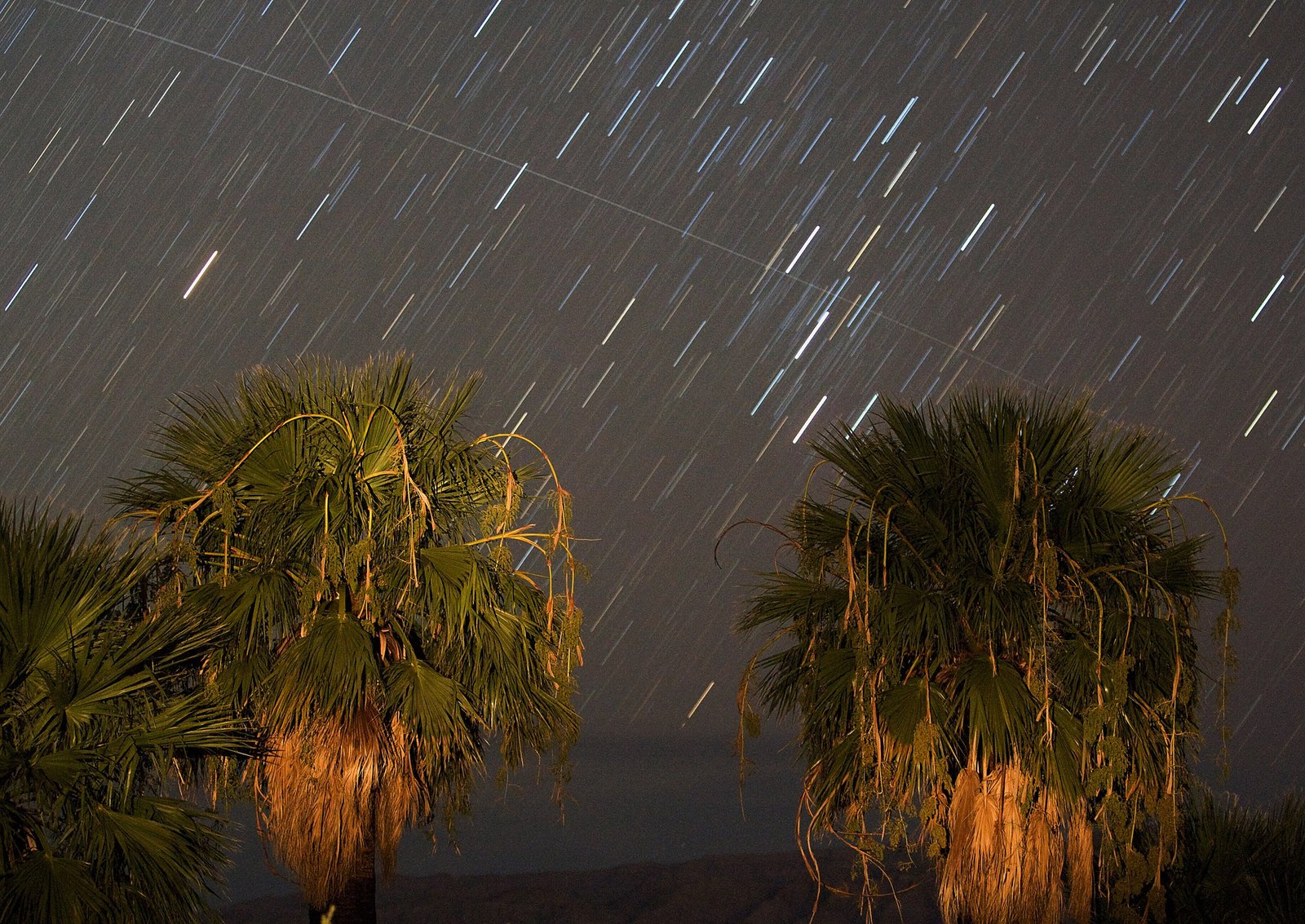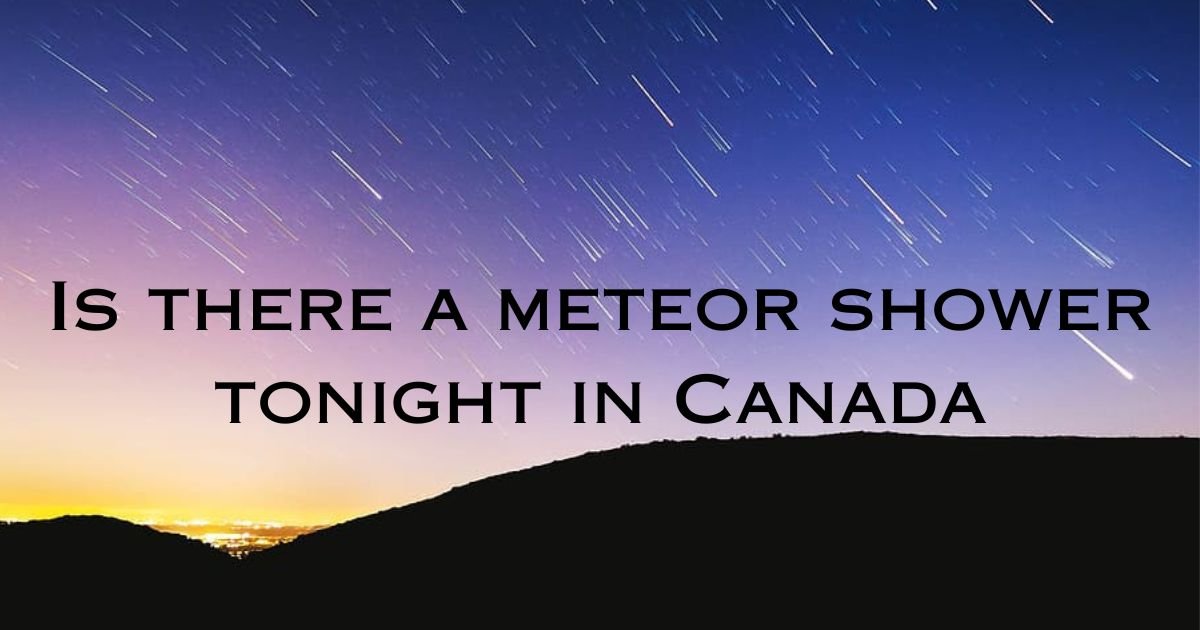Experience the Celestial Spectacle: Geminids Meteor Shower Peaks with Dazzling Displays
1. Introduction
Tonight, Canada and the world are in for a celestial treat as the much-anticipated Geminids meteor shower reaches its peak. In this article, we’ll delve into the details of this astronomical event, exploring everything from its history to practical tips for observation.
2. The Geminids: An Astronomical Highlight
The Geminids meteor shower, an annual spectacle, is renowned as one of the best and most reliable cosmic displays. Recognized by NASA, it promises a stunning show under optimal conditions.
3. The Anticipation Builds: Geminids’ Journey Since Late November
The journey of the Geminids begins in late November, gradually building anticipation as it approaches its peak. We’ll explore the factors that contribute to this fascinating meteor shower.
4. The Peak Night: A Visual Feast for Stargazers

The highlight of the Geminids meteor shower is its peak night, expected to be Wednesday night into early Thursday. Skywatchers can anticipate a visual feast with an estimated 120 shooting stars per hour.
5. Bonus Feature: Minimal Moonlight for Maximum Effect
Unlike some years, this year’s Geminids come with a bonus—minimal interference from moonlight. Discover how this enhances the vividness of the cosmic spectacle.
6. The Bright and the Beautiful: Understanding Geminids’ Colors
Geminids are known for their brightness and speed, often displaying yellowish or white hues. However, their surprising range of colors, including green, red, and blue, adds an extra layer of allure.
7. Insight from NASA: Bill Cooke’s Perspective on Geminids
Bill Cooke, lead for the Meteoroid Environment Office at NASA’s Marshall Space Flight Center, provides insights into the captivating nature of Geminids in a recent blog post.
8. Global Visibility: Where and When to Watch
Whether you’re in Canada or anywhere else globally, the Geminids can be observed from any location. We’ll guide you on the optimal viewing time and the direction to witness this celestial show.
9. Choosing the Perfect Vantage Point: Away from Light Pollution
For an unparalleled experience, find a vantage point away from city lights and light pollution. We’ll discuss how a panoramic view of the night sky enhances the meteor shower.
10. Preparing for the Show: Adjusting Your Eyes and Timing
To fully appreciate the meteor shower, give your eyes about 30 minutes to adjust to the darkness. We’ll also explore the optimal timing for the best celestial experience.
11. Geminids’ Origin Story: Debris from Asteroid 3200 Phaethon
Learn about the origin of the Geminids meteor shower, which traces back to the remnants of an asteroid named 3200 Phaethon, discovered in 1983.
12. A Long-Lasting Display: Geminids Beyond the Peak
While the Geminids will reach their peak this week, the meteor shower will continue to grace the night sky until December 24, offering ample opportunities for sky enthusiasts.
13. Conclusion
As we prepare for this celestial spectacle, observers in the Northern Hemisphere are advised to bundle up against the chilly winter conditions. The Geminids meteor shower offers a unique and captivating experience for all astronomy enthusiasts.
We also recommend that you read our https://usageniusrealm.com/andre-braugher-cause-of-death/
14. Frequently Asked Questions (FAQs)
- What makes the Geminids meteor shower unique? The Geminids meteor shower is distinctive for its reliability and brightness. Unlike some meteor showers, Geminids are known for their colorful display, including yellowish, white, green, red, and even blue hues. This makes them a unique and visually stunning celestial event.
- Can the Geminids be seen from the Southern Hemisphere? Yes, the Geminids meteor shower can be observed from both the Northern and Southern Hemispheres. While the radiant point, where the meteors appear to originate, is in the Gemini constellation in the northern sky, the meteors can be seen across the entire night sky, making them visible from the Southern Hemisphere as well.
- Are there any specific safety measures for meteor shower observation? Observing meteor showers is generally safe, but it’s advisable to choose a dark location away from city lights to enhance visibility. Additionally, dress warmly, especially during winter events like the Geminids, and consider bringing a reclining chair or blanket for comfort during extended observation periods.
- How can I capture photos of the Geminids meteor shower? To capture photos of the Geminids, use a camera with manual settings and a wide-angle lens. Set a high ISO, a wide aperture, and a long exposure time to capture the faint light trails. Use a sturdy tripod to keep the camera stable, and consider taking multiple shots to increase your chances of capturing meteors.
- Are there any cultural or historical significance associated with the Geminids? The Geminids meteor shower has become a popular cultural and astronomical event, drawing attention from skywatchers worldwide. While it may not have specific cultural or historical ties, its annual occurrence and breathtaking display have made it a celebrated and anticipated event in the astronomical calendar.










